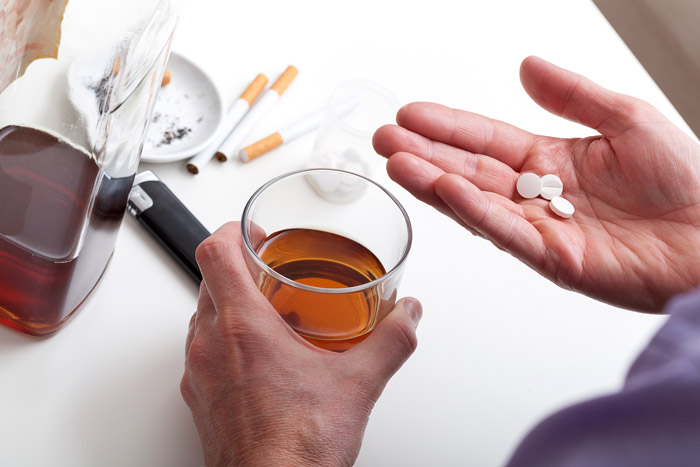Tragically, Georgia’s opioid crisis is still a critical health issue.
The Georgia Hospital Association shares January 2019 reports from the Centers for Disease Control which indicate:
- Synthetic opioid overdose deaths—from substances like fentanyl—increased in Georgia more than 45 percent since 2017.
- Opiate prescribing rates were higher in rural Georgia than metropolitan areas of the state. In fact, rural residents had an 87 percent greater chance of receiving an opioid prescription.
- From 2010 to 2017, overdose deaths in Georgia caused by opioids increased by more than 245 percent.
In January 2019, the Georgia Department of Public Health (DPH) developed the following programs:
- Opioid and Substance Misuse Response, which leads statewide efforts to “respond to the opioid epidemic.”
- The Prescription Drug Monitoring Program, an electronic database to “monitor the prescribing and dispensing of controlled substances.”
- Drug Overdose Surveillance Unit, which “monitors drug overdose trends and responds to clusters of overdoses.”
These are just a few of the important awareness and action initiatives to help curb the problem. Direct education and access to resources are usually two of the top methods for prevention. For example, DPH offers a variety of opiate fact sheets for individuals and families, law enforcement personnel, first responders, medical providers, and pharmacists. One of the top facts is “Do not combine opioids with alcohol.” But why?
Fueling the Fire
Medically-administered opioids help to relieve moderate-to-severe pain, especially when it’s associated with accident-related injuries, post-surgery, or cancer. To achieve this, the drugs mimic the body’s natural pain receptors and release dopamine, a neurotransmitter in the brain’s reward system.
For short-term pain management, this is a fine solution. However, over a longer period of time, individuals develop a tolerance to opiates, developing psychological and physical dependencies. They often require more medication or illicit drugs to produce the same euphoric effects, never solving the root cause of their pain.
Alcohol affects the mind and body in similar ways. Northwestern Medicine reports that it only takes five minutes for alcohol to reach your brain, and the effect is noticeable in just 10 minutes. Alcohol also prompts the brain’s pleasure center to release dopamine. Some people can develop a tolerance to certain symptoms such as slurred speech, confusion, blurred vision, and other effects, but the substance is wreaking havoc on the mind and body.
Common side effects of combining substances, according to the National Institute on Alcohol Abuse and Alcoholism, include:
- Drowsiness
- Lightheadedness
- Nausea and vomiting
- Impaired motor function
- Confusion
- Peculiar behavior and mood swings
- Memory problems
There are also numerous life-threatening conditions that develop:
- Liver and kidney disease. Like everything we eat and drink, opiates and alcohol are processed by the liver. Liver damage caused by alcohol abuse is quite common, but combined with opiates, it can be deadly. The kidneys are responsible for filtering blood and helping to maintain proper water levels in the body. Excessive drinking prohibits this filtering function, and opiates restrict blood flow to the kidneys.
- Respiratory depression. A study by the American Society of Anesthesiologists says this is a complication when the breath becomes “extremely shallow or stops altogether.” This health risk is especially prevalent among older persons. It can happen with only one oxycodone tablet and a small amount of alcohol.
- Hypoxia. Both natural and synthetic opiates produce a sedative effect, and alcohol is a depressant. As referenced above, the combination of opioids and alcohol frequently suppresses the respiratory system. If this happens for too long, a person’s brain doesn’t receive enough oxygen, and they experience hypoxia. This condition causes comas, and permanent brain and nervous system damage.
- Sedation leading to more dangerous conditions. In addition to frequent periods of unconsciousness or blackouts, people have a greater risk of overdose and death when combining alcohol and opioids.
Treatment for Mixed Substance Abuse
It’s imperative that an individual taking both opioids and alcohol not try to stop cold and fast. The physical withdrawal symptoms can last up to one month, and because of the combination of substances, are often quite severe. A medically-supervised detoxification administered in an inpatient rehabilitation facility is necessary to allow professionals to gradually stage the process to make it as comfortable as possible.
Psychological withdrawal symptoms are addressed through methods of group and individual therapy, 12-Step meetings, recreational therapy, family counseling, and ongoing education. This focused approach establishes a foundation of long-lasting wellness and recovery. In some cases, extended residential treatment may be necessary in a continuum of care plan to allow someone easier acclimation to daily life outside of a care facility.
Specialized support groups help individuals in recovery from alcohol and opioid addiction. These include:
- Narcotics Anonymous, Alcoholics Anonymous, and Opiates Anonymous
- SMART Recovery
- Chronic Pain Anonymous
- Various support groups in Georgia
Individualized Care at Willingway
In 2017, Willingway developed the Opiate Reduction Services Program (ORS). This outpatient approach provides clinical services and alternative therapies for pain relief. It’s a purposeful methodology to reduce or completely eliminate the need for narcotics.
Pain is incredibly subjective, which is why the experts at Willingway strive to understand the root cause of it and create a manageable, long-lasting plan of wellness. Learn more about how ORS saves lives.

